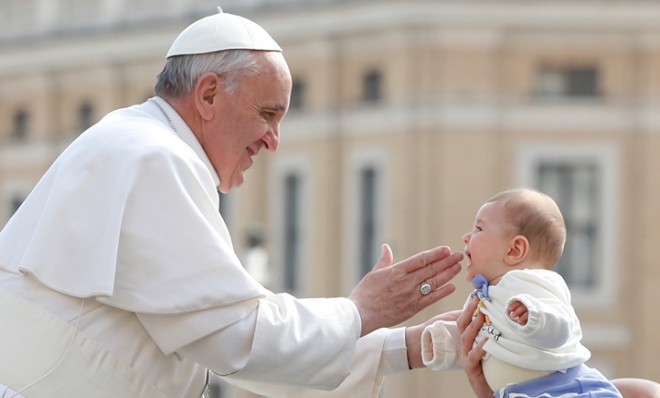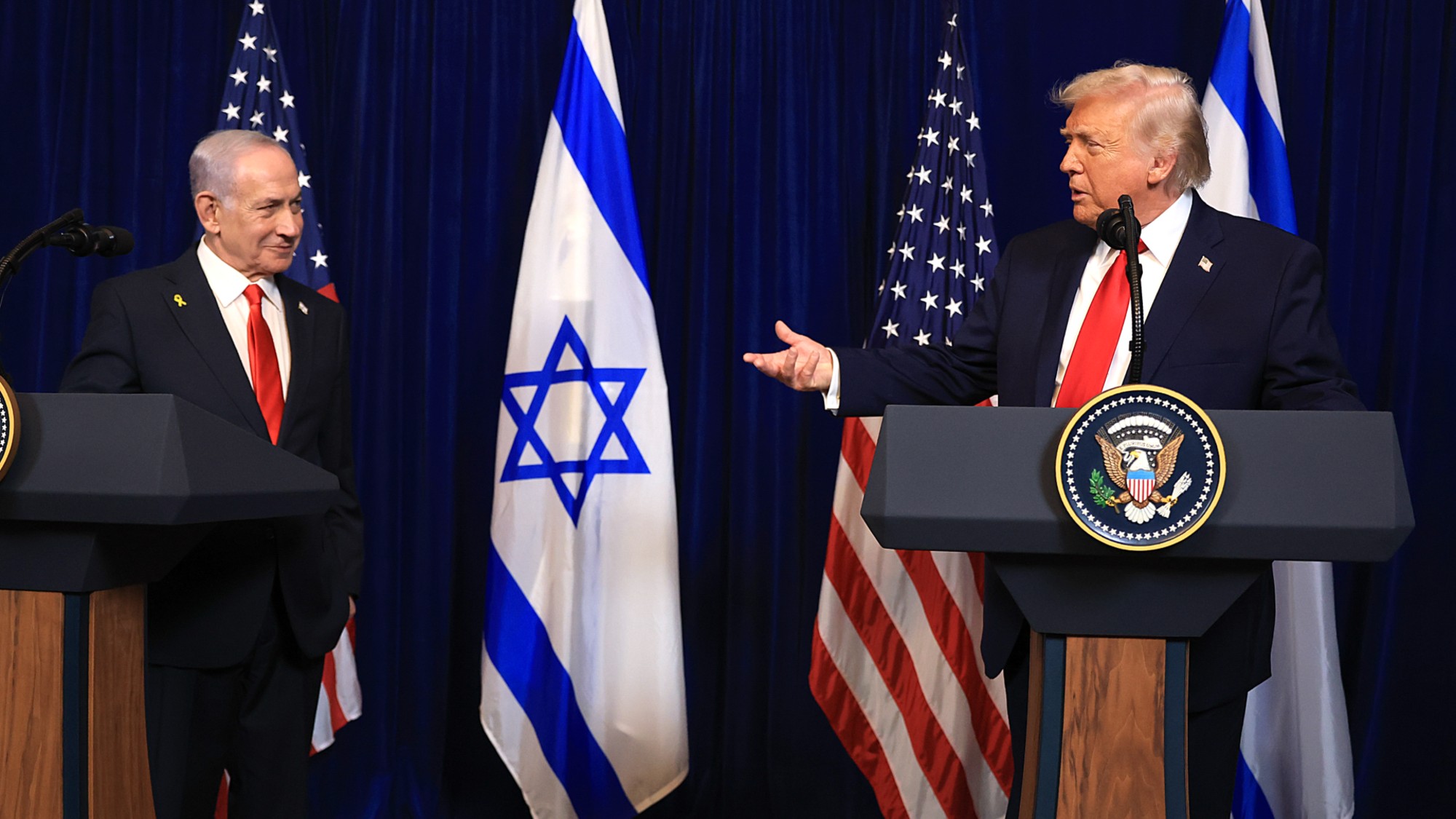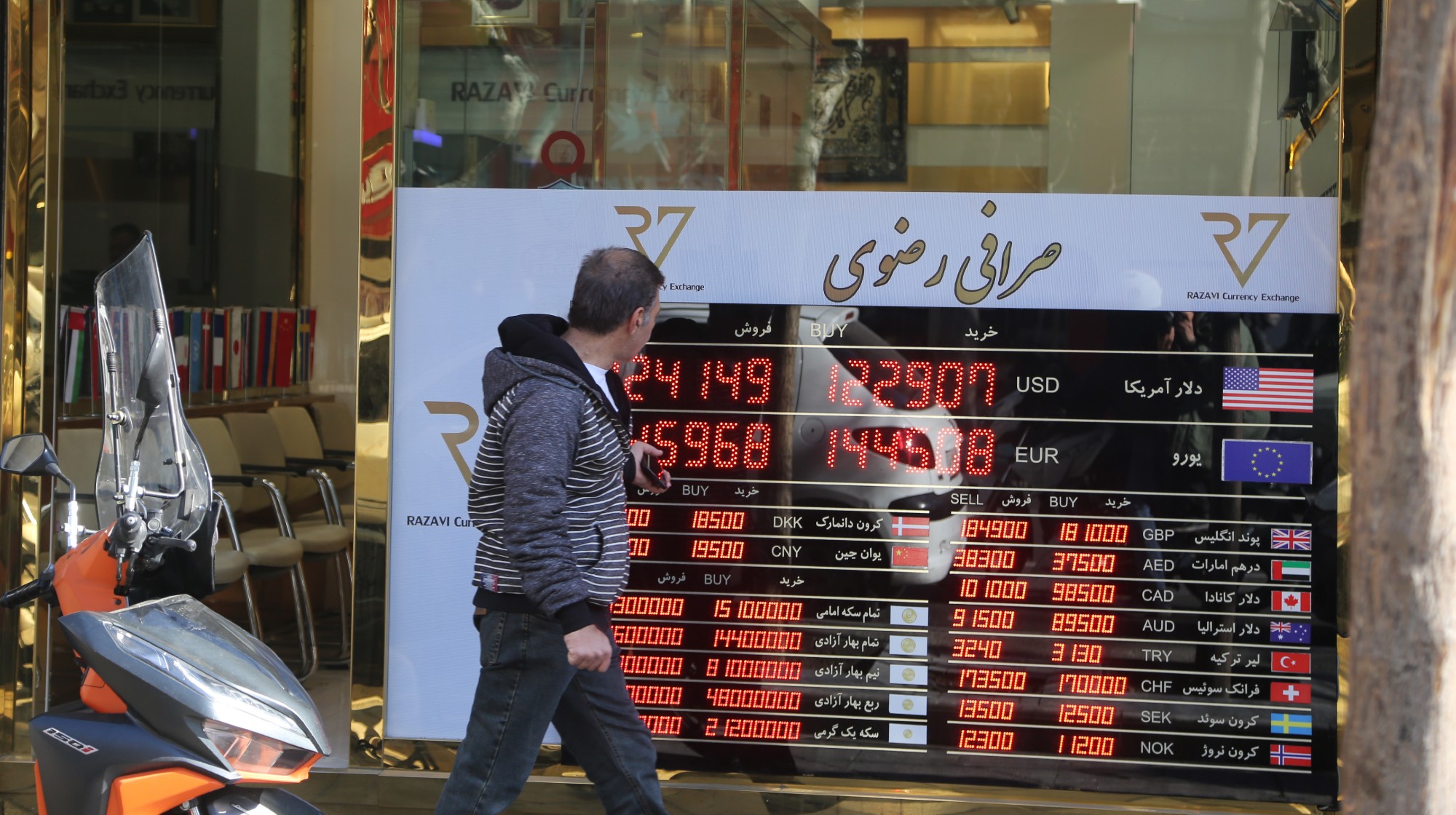7 fascinating things we've learned about Pope Francis
Almost three weeks into his papacy, Francis is sending out ample clues about what kind of pontiff he'll be


It has been two and a half weeks since the world was introduced to Pope Francis, and his unexpected promotion to the head of the Roman Catholic Church was met with a flurry of quick profiles. We learned, for example, that he is a Jesuit, lived in a small apartment and cooked his own meals, had a complicated relationship with Argentina's former military dictatorship, and has only one lung.
Then, most of us moved on to other things, as the new pope was officially installed in his position and started sending signals about what kind of a pontiff Pope Francis will be. What have we learned? Well, so far "it might seem as if Pope Francis is in a bit of denial over his new job as leader of the world's 1.2-billion Catholics," says the Associated Press' Nicole Winfield. "Or perhaps he's simply changing the popular idea of what it means to be pope, keeping the no-frills style he cultivated as archbishop of Buenos Aires in ways that may have broad implications for the church."
So, as the new pontiff presides for the first time over the holiest weekend of the Christian calendar, here are seven things we've learned about him so far:
The Week
Escape your echo chamber. Get the facts behind the news, plus analysis from multiple perspectives.

Sign up for The Week's Free Newsletters
From our morning news briefing to a weekly Good News Newsletter, get the best of The Week delivered directly to your inbox.
From our morning news briefing to a weekly Good News Newsletter, get the best of The Week delivered directly to your inbox.
1. He's not moving into the papal palace
Pope Francis has shown his desire to keep up the humble lifestyle he cultivated in Argentina in several ways: He showed up to pay his own pre-conclave hotel bill in person, personally called his newspaper carriers in Buenos Aires to cancel his subscriptions, frequently talks about the need for priests from the pope on down to serve the people, and spent Holy Thursday washing the feet of young inmates at a detention center outside Rome, instead of cleaning priests' feet (or delegating the washing) in Rome's ornate churches, as previous popes have done. But his highest-profile move has been his decision to live in a small suite in the Vatican hotel, the Casa Santa Marta, instead of the opulent 12-plus-room papal apartment on the top floor of the Apostolic Palace.
There will "be no 16th-century polished marble floors or roof terrace with unmatched views of Rome" for the "least popey Pope in papal history," says Simon Usborne at Britain's The Independent, at least not outside of office hours: Francis will use the papal apartment as his workspace, to receive official guests and handle papal business. But he'll live in the antiseptic, institutional hotel with other guests, eating in a communal dining room and celebrating mass with Vatican groundskeepers, domestic staff, and other low-level workers — "for now," says Vatican spokesman Fr. Federico Lombardi. "We'll see how it works."
"Beyond seeking a humbler set-up — not to mention a home-base that's less isolating and, perhaps, easier to sneak out of as he sees fit," says Rocco Palmo at Whispers in the Loggia, the move highlights another aspect of this "unique papacy: Unlike his predecessors since time immemorial, the pontiff has no personal household of aides and domestics who've come with him to the Vatican." Without an entourage to share the spacious papal apartment with, Pope Francis would have been living in a big house by himself.
A free daily email with the biggest news stories of the day – and the best features from TheWeek.com
2. Francis is no "Prada Pope"
The new pope's austerity is particularly notable as a contrast to his predecessor, Pope Emeritus Benedict XVI, who "was known in Italian media as the Prada Pope thanks to his custom-made red slippers," says The Independent's Usborne. And it wasn't just the red shoes and ermine vestments: As soon as Benedict became pope in 2005, he "commissioned 200 architects and specialist builders to renovate the appartamento pontificio," including putting in a "high-spec German kitchen."
Francis is keeping his black shoes, foregoing the red cape popes usually wear, and "his reluctance to change too much extends under the white cassock," too, says Whispers in the Loggia's Palmo: Francis' simple sartorial choices "don't just make his move to keep wearing black pants visible through the garment, but likewise highlight the untucked tails of his white dress-shirt." He's also keeping the iron-plated pectoral cross he used as archbishop, and his papal fisherman's ring isn't gold but gold-plated silver, made from a mold created for Pope Paul VI.
3. He sees himself as a bishop, not a king
One of the things that might prevent the new pope from rejecting "the pomp and ceremony that surrounds his 2,000-year-old office" is the name he inherited, says Peter Stanford in Britain's The Guardian: "His full title is 'bishop of Rome, vicar of Jesus Christ, successor of St Peter, prince of the apostles, supreme pontiff of the universal church, patriarch of the west, primate of Italy, archbishop and metropolitan of the Roman province, sovereign of the state of Vatican City.'" That's a mouthful when "you are busy telling people you are at their service."
He still goes by "Bergoglio" to his closest friends, says the AP's Winfield, and signs his official correspondence "Francis." When it comes to how he sees his papacy, perhaps the biggest titular clue came when he was announced to the world as pope and said his fellow cardinals had given "Rome a bishop." As it turns out, "bishop of Rome is the title he has emphasized repeatedly ever since — not vicar of Christ, or any of his other official titles."
4. Francis might be stubborn enough to take on the Curia
Everybody is focusing on the pope's personal austerity and humility, but people overlook his "management experience in his native Argentina as head of the Jesuit province and chairman of the national bishops conference," says Reuters' Tom Heneghan. He's been described as an attentive and personable boss, but also one who is "demanding, has little patience for bureaucracy, and appoints talented assistants." His predecessor, Benedict, was not a good manager, and it showed, in a leak-prone and feudal Vatican bureaucracy, or Curia. "The first hint Francis gave of plans to change the Curia came three days after his election when he reappointed its top bureaucrats temporarily rather than permanently, as Benedict did after being elected in 2005."
Francis' "success at defining himself as himself on the world stage has come thanks to a less visible, yet equally key trait of the 266th pope: His steely sense of determination," says Palmo at Whispers in the Loggia. We haven't seen too much of that trait yet, but "its early quiet flashes are merely shaping up as a sneak preview of the battle of wills which is almost certain to define his pontificate."
5. He's a pretty deft politician
Francis' "sharp political skills have long been apparent to Argentines," and he's already deployed them as pope to win friends and influence people, says the AP's Debora Rey. That's true nowhere as starkly as in the "remarkable about-face" of his former nemesis, Argentine President Cristina Fernandez de Kirchner. When Fernandez decided it was in her interest to ally herself with the Argentine pope, he reciprocated, granting her his first papal audience. This is a pretty clear "signal that when it comes to the populist governments of Latin America, he'll avoid the kinds of direct confrontations that feed divisive politics, and instead will seek to co-opt them as well, joining forces to help the poorest benefit from society."
6. He will focus on ecumenism
Another early motif of the Franciscan papacy is cooperation and reconciliation with other faiths. A remarkable number of religious leaders attended and even participated in his installation mass, and "in his March 20 audience with religious leaders, Francis sent an important signal about his view of the papacy and its relationship with other Christians," says the AP's Nicole Winfield. He greeted Patriarch Bartholomew I, the spiritual leader of the world's Orthodox Christians, as "my brother," and placed his chair on the floor along with all the other religious leaders. "Two days later, when Francis greeted diplomats accredited to the Holy See, his chair was up on a platform."
"To have a simpler view, less grandiose sense of the trappings of the papacy might be saying, 'I want to be able to relate to you at a different level,'" U.S. Greek Orthodox official Anton Vrame tells the AP.
7. He is driving his security detail "crazy"
If reporters and commentators are charmed by Pope Francis, he's causing headaches with the Vatican security service — the mix of Swiss Guards and Vatican police charged with protecting the pope. Pope Francis has ditched the bulletproof-glass-enclosed Popemobile the pontiff has used since Pope John Paull II was shot in 1981, riding around in an open-air white Mercedes jeep — and frequently getting out to greet the crowds. (See video below).
He's also mixing freely with crowds at churches and walking when his security detail wants him to go by car. It's hard to argue with a pope, so "as Curialists of every stripe tend to do, the guards have taken their case to the ultimate sounding board of life behind the walls: The Italian press," says Rocco Palmo. Anonymous security officials tell Italy's La Stampa that they are "seeking to adjust to the new style," but should Francis' habits not "normalize" after his first days, "it will make everybody crazy."
Watch Pope Francis' first spin in the Popemobile:

Peter has worked as a news and culture writer and editor at The Week since the site's launch in 2008. He covers politics, world affairs, religion and cultural currents. His journalism career began as a copy editor at a financial newswire and has included editorial positions at The New York Times Magazine, Facts on File, and Oregon State University.
-
 Into the Woods: a ‘hypnotic’ production
Into the Woods: a ‘hypnotic’ productionThe Week Recommends Jordan Fein’s revival of the much-loved Stephen Sondheim musical is ‘sharp, propulsive and often very funny’
-
 ‘Let 2026 be a year of reckoning’
‘Let 2026 be a year of reckoning’Instant Opinion Opinion, comment and editorials of the day
-
 Why is Iran facing its biggest protests in years?
Why is Iran facing its biggest protests in years?TODAY’S BIG QUESTION Iranians are taking to the streets as a growing movement of civic unrest threatens a fragile stability
